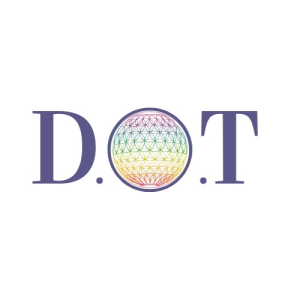Development Over Time Admin
Blog entry by Development Over Time Admin

Author: Clarissa Terracciano
Date: September 27, 2024
Category: Education Technology, Blockchain, AI in Education
Blockchain and AI in Education
In today's rapidly evolving technological landscape, educators and policymakers must remain vigilant in understanding how innovations can shape and enhance learning experiences. Two technologies leading the charge are blockchain and artificial intelligence (AI). Combined, they offer unique solutions to some of education's most persistent challenges, such as ensuring equitable access to learning, improving transparency, and enhancing personalized learning experiences. This blog will explore how blockchain and AI go hand in hand and why education leaders should pay close attention.
Blockchain: Creating Secure and Transparent Learning Ecosystems
Blockchain technology has the potential to revolutionize education by offering decentralized, secure, and transparent systems for managing credentials and learning records. As Grech, Balaji, and Miao (2022) emphasized in their research, blockchain can transform how education credentials are stored and accessed. By decentralizing the process, learners gain greater control over their achievements, and institutions can securely validate credentials across different platforms without relying on intermediaries. This innovation is particularly vital in today's globalized education system, where students and professionals frequently need their credentials recognized across borders.
Furthermore, Cerdan and Jardí (2018) point out that blockchain has the capacity to reshape digital education by creating systems that securely validate learning pathways and experiences. This means students can engage in personalized learning journeys while having verifiable proof of their skills and achievements, no matter where they learned them.
AI: Personalized and Adaptive Learning
While blockchain secures the infrastructure of education, AI transforms the delivery of learning itself. AI's ability to analyze massive amounts of data in real-time allows it to create personalized learning experiences that adapt to each student's needs. As Ghonim and Corpuz (2021) highlight, AI supports competency-based learning approaches, helping educators track progress and identify areas where students need additional support. Through AI-driven systems, learners can receive personalized recommendations and real-time feedback, enhancing their engagement and mastery of subjects.
AI's role in education doesn't stop at personalized learning. It also improves administrative efficiency, allowing educators to focus on the human aspects of teaching. By automating repetitive tasks like grading and data collection, AI frees up time for educators to dedicate more attention to individual students, fostering a deeper and more meaningful learning experience.
The Synergy of Blockchain and AI in Education
When these two technologies—blockchain and AI—are combined, the result is a powerful synergy that can transform how education is delivered and experienced. Blockchain ensures the security, transparency, and decentralization of educational records, while AI utilizes the data within these records to create adaptive, responsive, and personalized learning environments. For example, blockchain can securely store micro-credentials or badges that AI-driven platforms use to customize student learning paths.
Arshad et al. (2023) explain how blockchain and AI together can offer innovative solutions for managing educational content, ensuring transparency in learning outcomes, and fostering collaboration between institutions. This integration allows for seamless tracking of academic progress and offers learners a level of autonomy never before possible.
What This Means for Educators and Policymakers
Educators must explore these technologies to understand how they can enhance teaching and learning experiences. Blockchain and AI not only provide innovative solutions for students but also streamline educators' processes, making it easier to track, validate, and manage student progress.
From a policy perspective, Garg et al. (2022) argue that the adoption of blockchain in education must be accompanied by supportive policies that encourage transparency and accessibility. Policymakers need to understand the implications of these technologies to build frameworks that support their adoption in a way that promotes equity and access for all learners.
Call to Action
Educators and policymakers alike must embrace the intersection of blockchain and AI. By doing so, they can unlock new potentials in education, from creating secure, transparent systems for managing learning records to delivering highly personalized learning experiences. As these technologies continue to evolve, those who are prepared to leverage their power will lead the transformation of education for the betterment of all learners.
Tags: Blockchain in Education, Artificial Intelligence in Education, EdTech Innovations, Digital Credentials, Personalized Learning, Educational Technology, AI and Blockchain Integration, Education Policy, Future of Education, Tech in Learning.
About the author:
Clarissa Terracciano is an experienced educator, educational consultant, and researcher specializing in blockchain technology and its transformative impact on education. Clarissa holds a BA in Psychology from CUNY Hunter College, an MA in Inclusive and Special Education from Teachers College, Columbia University, and is currently completing her PhD in Educational Leadership and Policy Studies at the University of Denver. She is committed to advancing equitable access to education through technology-driven approaches.
References
-
Grech, A., Balaji, V., & Miao, F. (2022). Education and blockchain. UNESCO and Commonwealth of Learning. https://doi.org/10.56059/11599/4131
-
Cerdan, A., & Jardí, A. (2018). Blockchain in Education: On the limit between the real, the possible and the dreamed. Digital Education Review, (34), 109-111.
-
Ghonim, A., & Corpuz, I. (2021). Moving Toward A Digital Competency-based Approach in Applied Education: Developing a System Supported by Blockchain to Enhance Competency-Based Credentials. International Journal of Higher Education, 10(5), 33-44. https://doi.org/10.5430/ijhe.v10n5p33
-
Arshad, A., Shahzad, F., Ur Rehman, I., & Sergi, B. S. (2023). A systematic literature review of blockchain technology and environmental sustainability: Status quo and future research. International Review of Economics and Finance, 88, 1602-1622. https://doi.org/10.1016/j.iref.2023.07.044
-
Garg, A., A, S., Kumar, P., Madhukar, M., Loyola-González, O., & Kumar, M. (2022). Blockchain-Based Online Education Content Ranking. Education and Information Technologies, 27(4793-4815). https://doi.org/10.1007/s10639-021-10797-5
